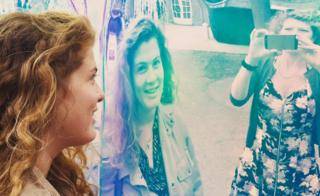Granny liked dat movie...
Oliver Sacks, neurologist, 'Awakenings' author, dies at 82
August 30, 2015 — There was the blind man who had the disastrous experience of regaining his sight. The surgeon who developed a sudden passion for music after being struck by lightning. And most famously, the man who mistook his wife for a hat.
Oliver Sacks, neurologist, 'Awakenings' author, dies at 82
August 30, 2015 — There was the blind man who had the disastrous experience of regaining his sight. The surgeon who developed a sudden passion for music after being struck by lightning. And most famously, the man who mistook his wife for a hat.
Those stories and many more, taking the reader to the distant ranges of human experience, came from the pen of Dr. Oliver Sacks. Sacks, 82, died Sunday at his home in New York City, his assistant, Kate Edgar, said. In February, he had announced that he was terminally ill with a rare eye cancer that had spread to his liver. As a practicing neurologist, Sacks looked at some of his patients with a writer's eye and found publishing gold. In his best-selling 1985 book, "The Man Who Mistook His Wife for a Hat," he described a man who really did mistake his wife's face for his hat while visiting Sacks' office, because his brain had difficulty interpreting what he saw. Another story in the book featured twins with autism who had trouble with ordinary math but who could perform other amazing calculations.
One of the best
Discover magazine ranked it among the 25 greatest science books of all time in 2006, declaring, "Legions of neuroscientists now probing the mysteries of the human brain cite this book as their greatest inspiration." Sacks' 1973 book, "Awakenings," about hospital patients who'd spent decades in a kind of frozen state until Sacks tried a new treatment, led to a 1990 movie in which Sacks was portrayed by Robin Williams. It was nominated for three Academy Awards.

Dr. Oliver Sacks speaks at the "Music & the Brain" presentation at the Abyssinian Church at the World Science Festival in New York City
Still another book, "An Anthropologist on Mars: Seven Paradoxical Tales," published in 1995, described cases like a painter who lost color vision in a car accident but found new creative power in black-and-white, and a 50-year-old man who suddenly regained sight after nearly a lifetime of blindness. The experience was a disaster; the man's brain could not make sense of the visual world. It perceived the human face as a shifting mass of meaningless colors and textures. After a full and rich life as a blind person, he became "a very disabled and miserable partially sighted man," Sacks recalled later. "When he went blind again, he was rather glad of it."
'Humanizes illness'



